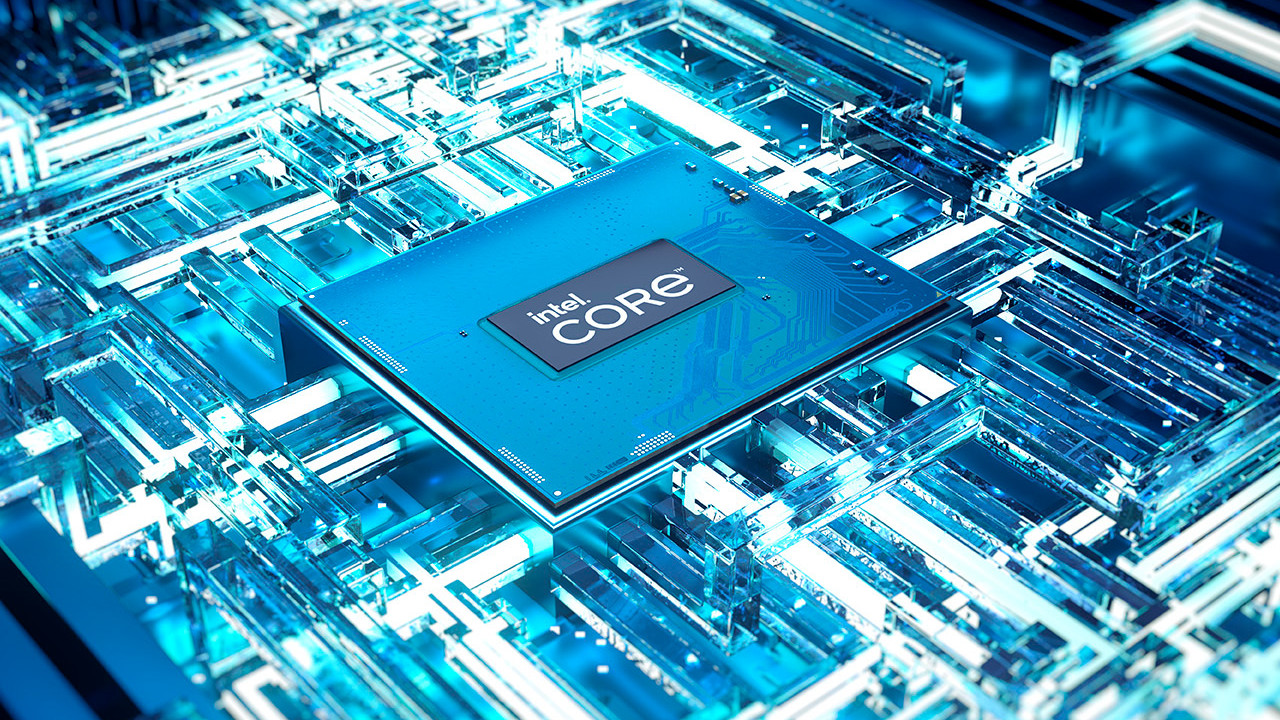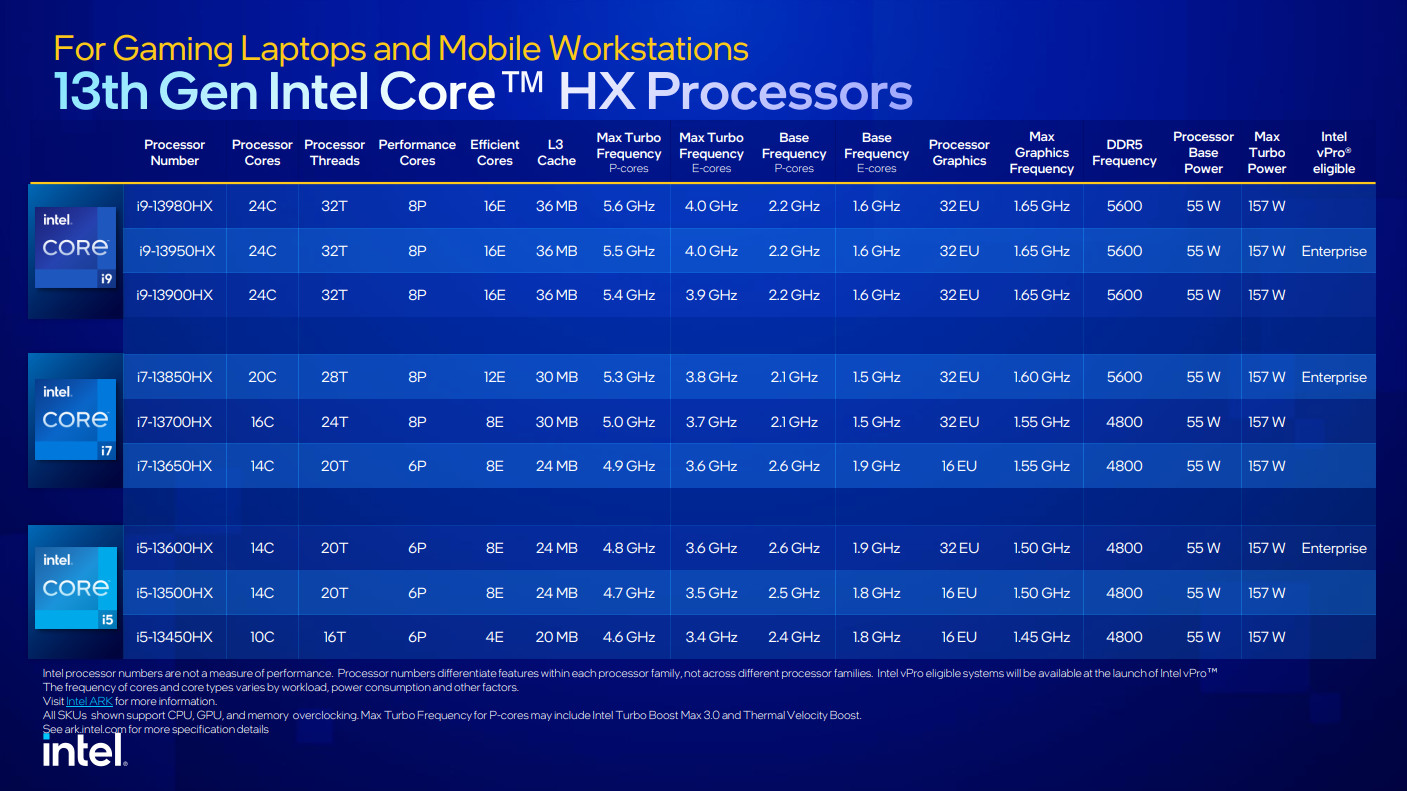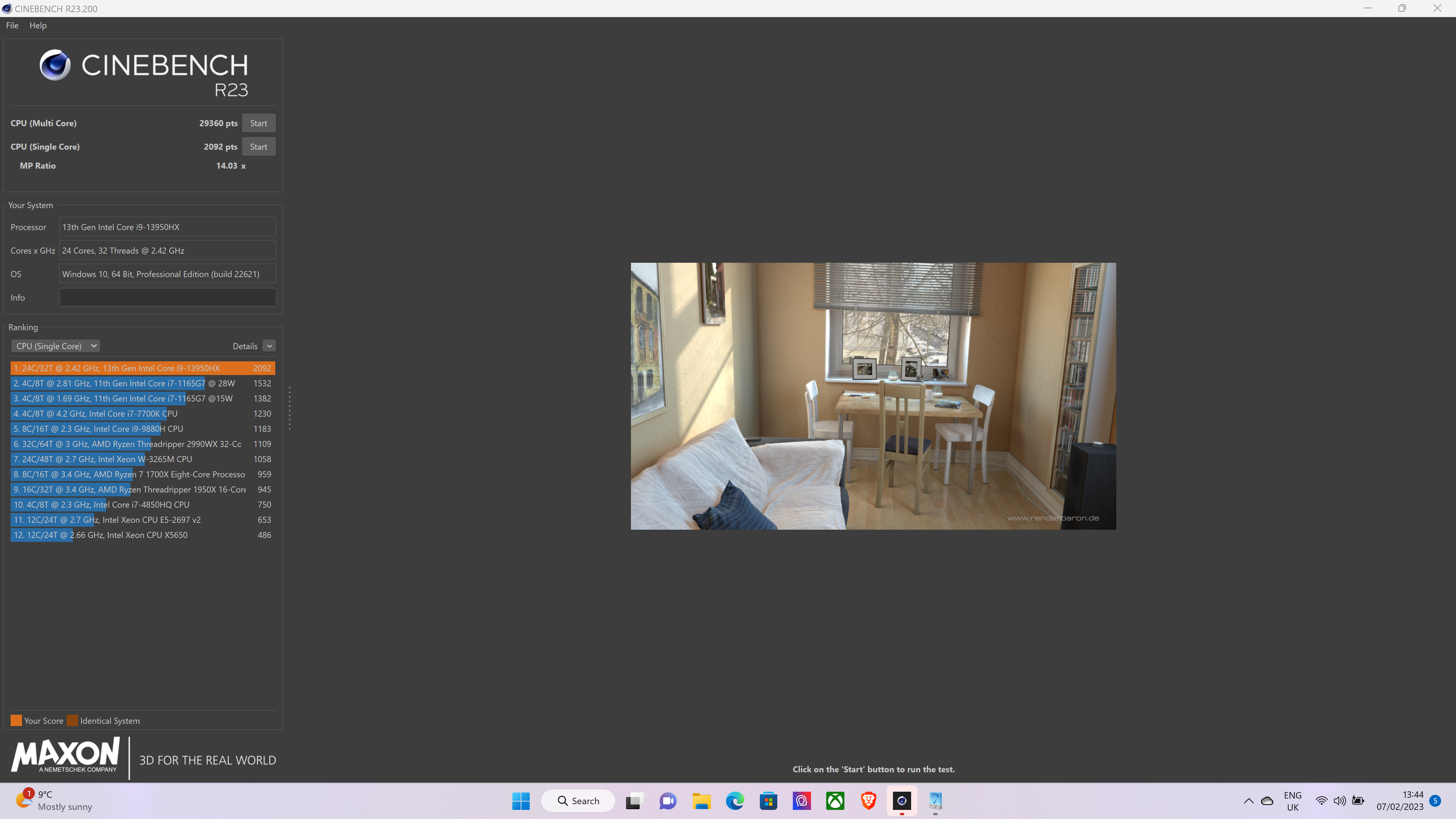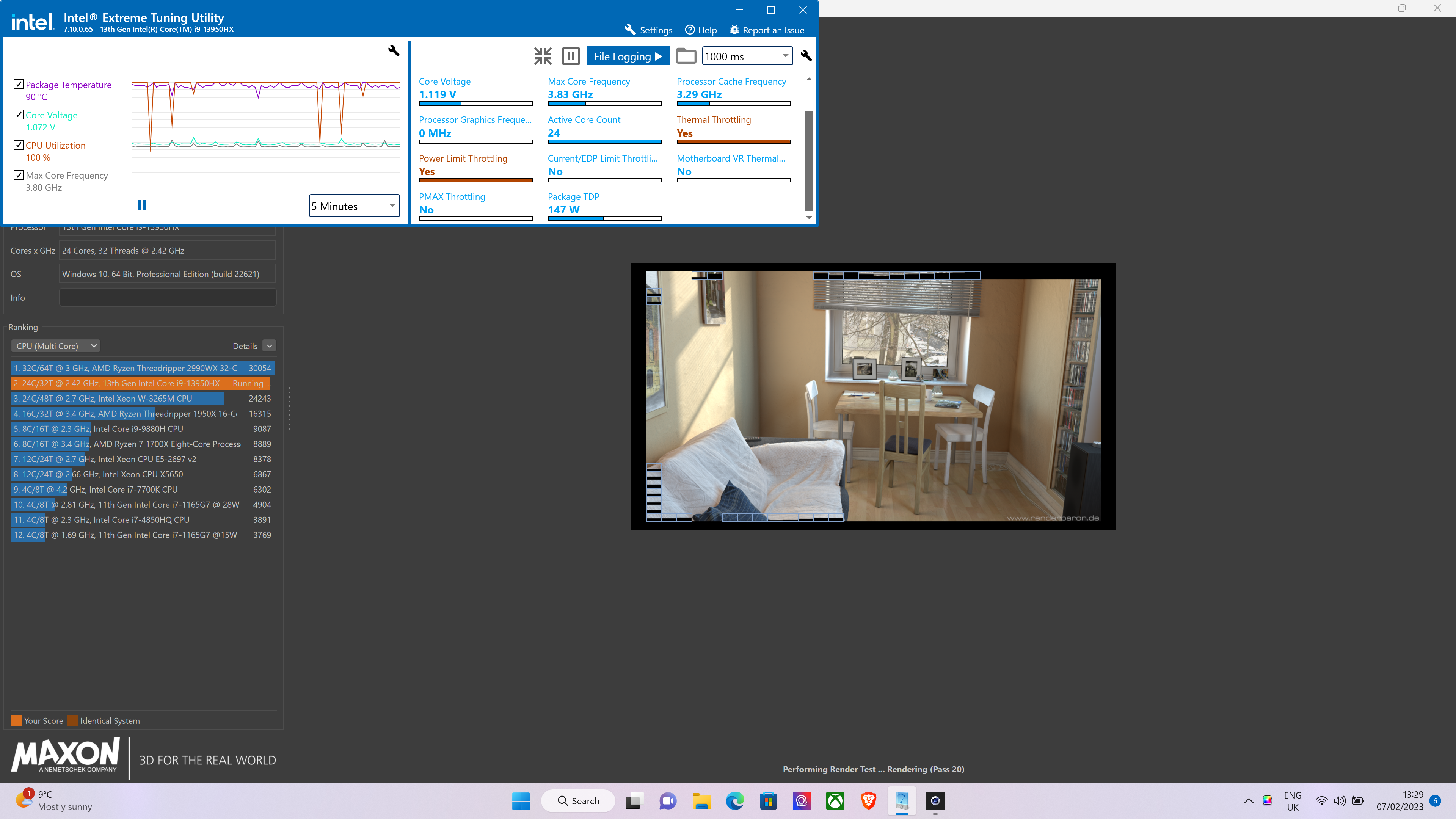The Intel Core i9-13950HX delivers monstrous, desktop-class power in a gaming laptop
Intel's newest Core i9 for laptops is bringing high-end desktop performance to portable PCs.

All the latest news, reviews, and guides for Windows and Xbox diehards.
You are now subscribed
Your newsletter sign-up was successful
Having been revealed for the first time at CES in early January, Intel's 13th Gen laptop CPUs are finally getting ready to get out in the world. And naturally, the chip maker is leading with its best (read fastest) foot forward.
Our first experience of the 13th Gen comes in the form of the Intel Core i9-13950HX. This isn't the absolute highest spec Core i9 available, indeed, the laptop I've been sent to test it out will actually ship to consumers with one slightly higher up the food chain.
This isn't a full review, as I haven't had more than a couple of days to spend with it yet. But here I've documented some of my early thoughts and they're almost all positive. This thing is shaping up to be a monster. Can you say desktop replacement?
The test machine
The laptop I've been sent to test the 13th Gen Intel Core i9 is provided courtesy of Intel and MSI. It's an MSI Titan GT77, though not in the exact spec that will be shipping to consumers.
Besides the CPU, other key specs include the NVIDIA RTX 4090 laptop GPU, 64GB of RAM, and a 144Hz 4K Mini-LED HDR display. Essentially the best of the best right now, with nothing holding the CPU back from performing at its best.
24-cores, 32 threads, huge performance
The top of the Core i9 tree is the 13980HX, admittedly not the one I have here, but it isn't vastly different. That one runs to a whopping 5.6GHz turbo. Below that, the max clock drops a little, to the 5.5GHz on the i9-13950HX inside this version of the GT77. So it's only a minor difference, but it's important to remember that it's the i9-13980HX that will be shipping in consumer versions of the Titan GT77.
Like the 13th Gen desktop chips, the laptop variants use Intel's hybrid design of P-cores (performance) and E-cores (efficient). The Core i9 is made up of 8 P-cores and 16 E-cores for a total of 32 threads. Only the P-cores are hyperthreaded, and these will be the ones utilized most in foreground tasks and gaming.
All the latest news, reviews, and guides for Windows and Xbox diehards.
Cinebench R23 (multi-core): 29,360
Cinebench R23 (single-core): 2,092
Geekbench 5 (multi-core): 19,562
Geekbench 5 (single-core): 2,071
CPU-Z (multi-core): 14,286
CPU-Z (single-core): 885
Despite all these cores, the power draw isn't totally off the charts. Sure, the Titan GT77 ships with a 330W power brick, but it also has an RTX 4090 to power. Given what's on offer here, it's not bad. Base CPU power is 55W, while that can rise to 157W under max turbo. But it's also not higher than Intel's lower-tier HX chips, so all told, it's good news. More performance, but no higher power ceiling.
I haven't had a chance to really put it through its paces as yet, but the initial signs are extremely promising.
Even on these limited early benchmarks, we can make some meaningful comparisons to Intel's desktop chips. Laptop CPUs never quite match up, but it's still interesting to see how close they can get. And obviously, it blows away the 12th Gen Core i9 laptop CPUs handily.
This is the best Intel has to offer on the laptop front for 2023, but even so, the performance so far is pleasing. Even with these early figures, it looks like the 24-core i9-13950HX is capable of besting the 12th Gen desktop Core i9-12900K in some areas, like Cinebench, which is pretty astonishing levels of power to have in a notebook. Of further note is that the Cinebench core for the Core i9-13950HX bests our previous testing of the i9-12900K with an overclock applied.
The 12th Gen Core i9 is still a great CPU even with its replacement now in the wild. The 13th Gen i9 is still a way in front, but so far it looks as though the Core i9 laptop chip can get close to the 13th Gen Core i7 desktop CPU if you look at these benchmarks. Benchmarks aren't everything though, but the signs are extremely pleasing.
There's still plenty more testing to do, however, including encoding performance and gaming, so stay tuned for that.
Thermals and power
Even with the limited testing, I've been able to get a feel for the thermal performance and power draw. The Cinebench benchmark has been useful to help track both, as it will max out the CPU as part of its render tests.
As you would expect from a CPU like this in a laptop thermal throttling is very much a thing. It seems to take effect when the package temperature reaches 95C (203F) and holds steady there. That's hot, but it's not dangerously hot. Even so, maybe don't benchmark it on your lap or anything. But ultimately it isn't exceeding the types of temperatures seen on previous generation high-end laptop CPUs.
Package TDP does seem to spike occasionally past the listed 157W maximum, albeit only briefly. I've seen it go as far as 165W on a couple of occasions, but mostly so far has sat below 157W when running multi-core stress tests. The Core i9-13950HX isn't unlocked (at least in this machine) so there isn't any further scope to push its boundaries. And while being stressed it seems to top out at 5.3GHz, below its max turbo value, this too isn't unexpected. I wouldn't expect to see it running a benchmark on all cores at 5.5GHz.
The bottom line...so far
Admittedly Intel is leading with its best foot forward here, and as cliched as it sounds, this is far and away the most powerful laptop CPU Intel has put out yet. And while AMD hasn't yet started pushing out its competing products, the red team will have to have something quite special to get a leg up on Intel.
The fact that this CPU seems to be able to compete with high-end desktop-class chips shows how far the laptop space has come. Using a laptop as an only machine for those who demand serious performance is a reality, there's little other way to put it. 24-cores and 32 threads in a portable PC is plain nuts.
While I still have more testing to do, including gaming, all signs point to Intel's new 13th Gen range-topper being an absolute champion.

Richard Devine is the Managing Editor at Windows Central with over a decade of experience. A former Project Manager and long-term tech addict, he joined Mobile Nations in 2011 and has been found in the past on Android Central as well as Windows Central. Currently, you'll find him steering the site's coverage of all manner of PC hardware and reviews. Find him on Mastodon at mstdn.social/@richdevine



